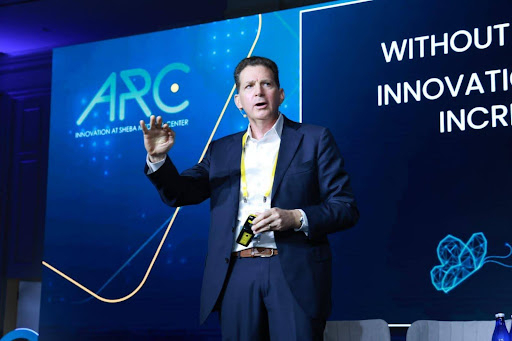
Health systems worldwide are under intense pressure as they face rising costs, aging populations, and an increasing demand for personalized care. In the United States, healthcare spending has skyrocketed, making it one of the most expensive sectors, while across Asia, a surge in chronic diseases is pushing healthcare systems to their limits. These challenges underscore the need for a reimagined approach to healthcare delivery, management, and financing.
Technology offers potential solutions, with digital health platforms, artificial intelligence, and telemedicine enhancing patient care. In Singapore, for instance, telehealth services are expanding to support elderly and rural populations. However, integrating these technologies across entire health systems remains challenging due to regulatory, infrastructural, and financial barriers.
To address these issues, Israel's Sheba Medical Center created ARC (Accelerate, Redesign, and Collaborate) in 2019. Located at Israel's largest hospital, ARC serves as a "living lab" where startups, clinicians, and researchers collaborate on healthcare challenges, embedding technology directly into hospital operations. In 2023, ARC partnered with Deloitte to expand this model globally, aiming to transform hospitals worldwide into agile, tech-powered hubs of patient-centered care.
A Blueprint for Modern Healthcare Innovation
Professor Eyal Zimlichman, Director of ARC and Chief Innovation and Transformation Officer at Sheba Medical Center believes hospitals should not only treat patients but also develop and implement solutions to emerging challenges. By fostering partnerships among tech startups, medical professionals, and researchers, ARC has quickly become a hub for healthcare innovation. Its agility sets it apart, allowing rapid testing and refinement of solutions in clinical environments, while traditional healthcare systems can take years to adopt new technologies.
"ARC makes a significant effort to integrate these solutions into existing workflows, minimizing disruption and facilitating smoother adoption," Zimlichman explains. "This hands-on, integrated approach speeds up validation and fosters continuous improvement, bringing impactful technologies to patients with far fewer barriers."
The ARC-Deloitte partnership leverages Deloitte's expertise to navigate the regulatory, operational, and cultural challenges in different regions. Together, they are establishing training hubs to help healthcare providers adapt ARC's model to local needs, such as in Asia, where limited resources make it difficult to meet healthcare demand. ARC's digital health platforms address these challenges by improving access to quality care through remote consultations and diagnostics.
At the Asia New Vision Forum in September, Singapore's Minister of State for Health, Mdm Rahayu Mahzam, highlighted technology's role in addressing regional healthcare challenges, saying, "We must strategically leverage technology, data, and innovation to create a sustainable, high-quality healthcare system. This approach will help us manage current needs and address future challenges."
Expanding the Transformation Model Globally
To facilitate implementation, ARC and Deloitte are using a phased rollout strategy, beginning in Asia and Europe, setting up training hubs where medical professionals can learn to apply ARC's technologies in their clinical settings. These hubs will bring together healthcare leaders, tech developers, and clinicians to develop solutions tailored to regional needs.
As ARC expands globally, it marks a shift in hospital operations. Traditionally, hospitals have focused on immediate care; ARC's model encourages them to adopt a dual role as care providers and centers of innovation. "By focusing on clinician-driven innovation," Zimlichman says, "ARC ensures that solutions are more likely to be implemented, as they are designed with input from those on the frontlines of patient care."
This approach represents a broader trend toward integrating technology and innovation as foundational to healthcare. ARC's model advocates for a cohesive framework where new solutions are continuously developed, tested, and integrated directly into care processes, positioning hospitals as leaders in driving advancements that enhance patient outcomes.
If successful, ARC's expansion could redefine healthcare worldwide. By turning hospitals into centers of innovation and collaboration, ARC envisions a future where healthcare is proactive and responsive, allowing systems to adapt quickly to new challenges. With flexibility to address specific regional needs, ARC aims to set a new standard for healthcare innovation, showing that hospitals everywhere can and should become leaders in shaping patient care.
This pioneering model from Sheba Medical Center, in collaboration with Deloitte, illustrates how hospitals can embrace agility and technology to better serve patients. As health systems globally grapple with mounting pressures, ARC's model is leading the way to a tech-driven future in which hospitals are both places of healing and engines of transformative innovation.









